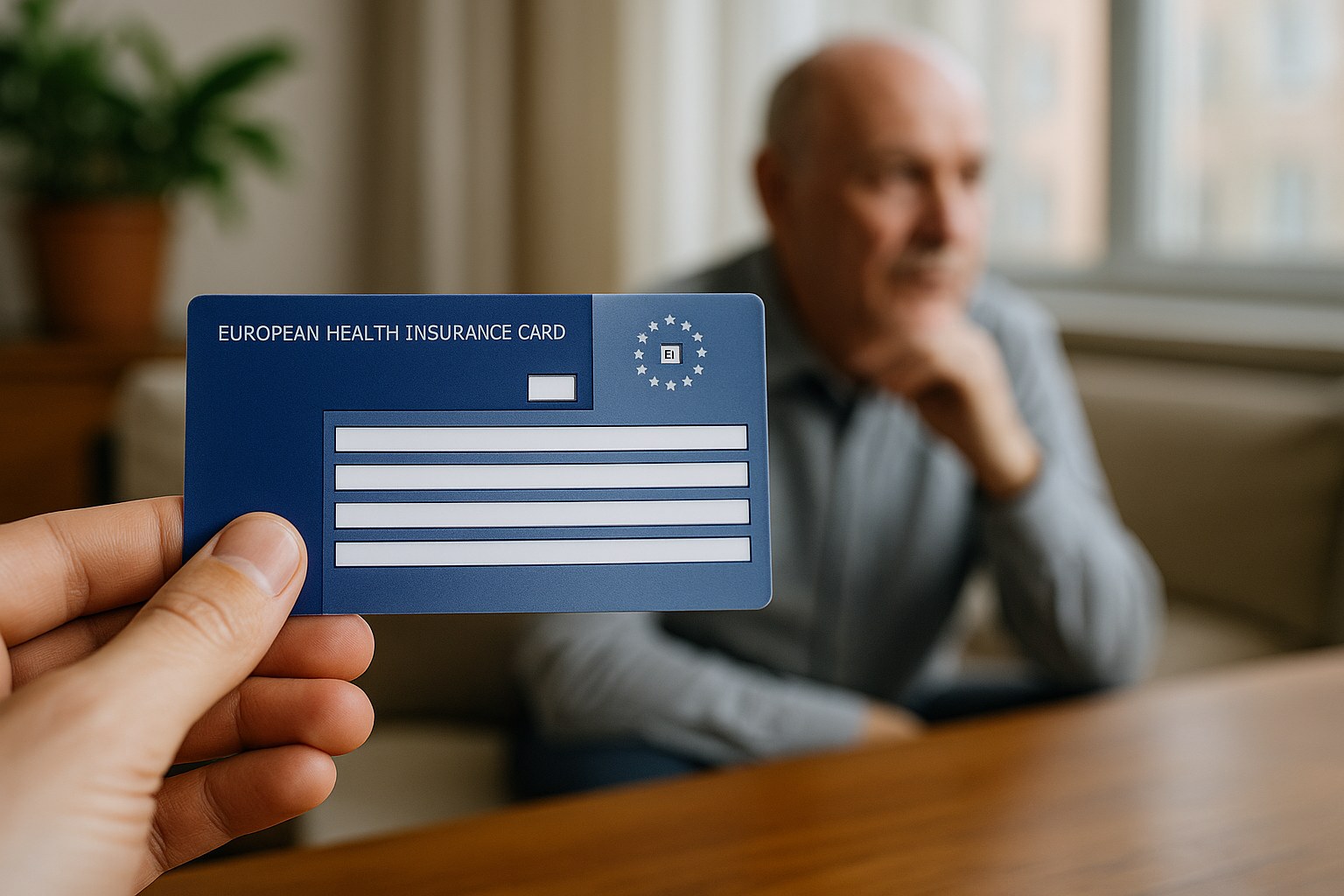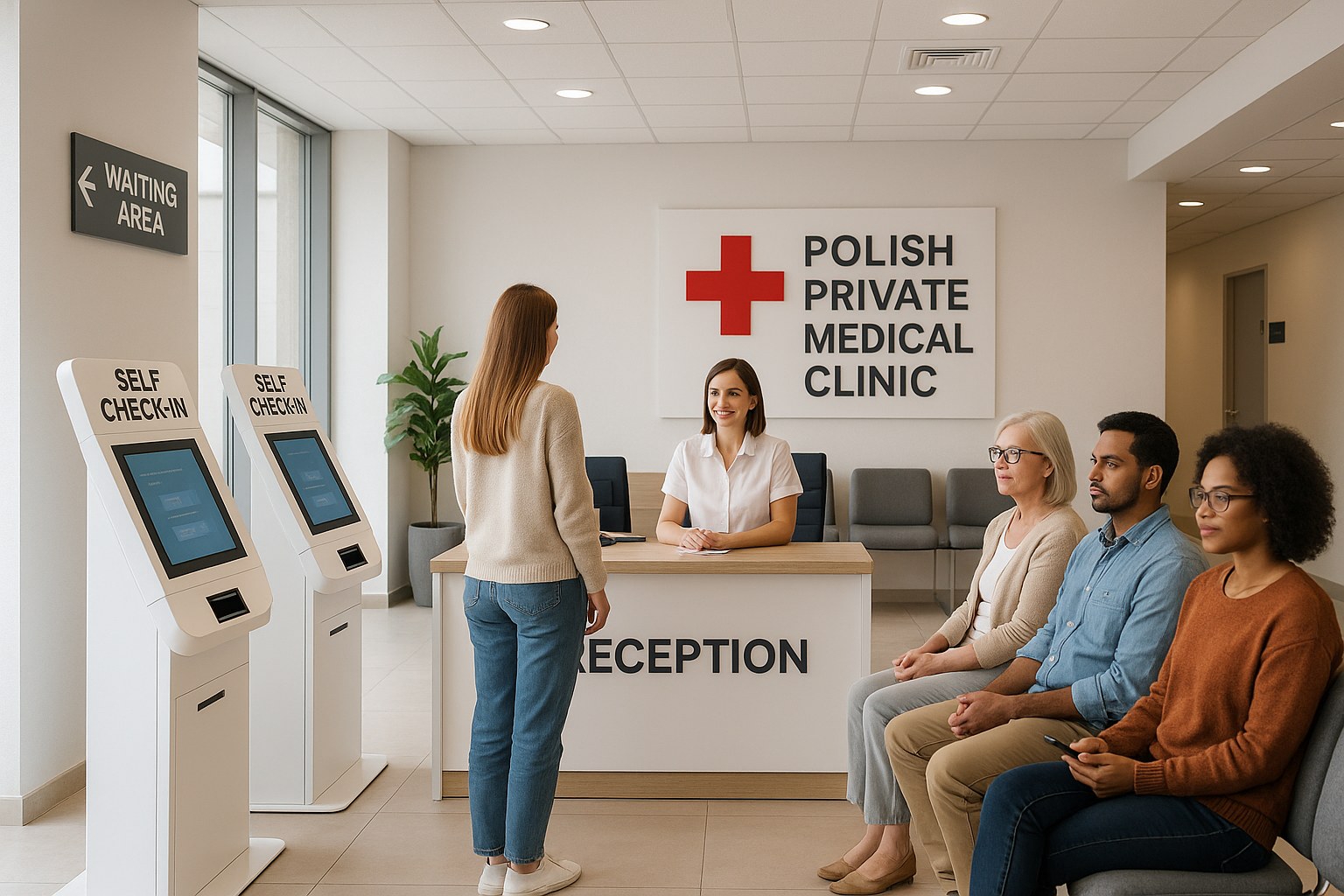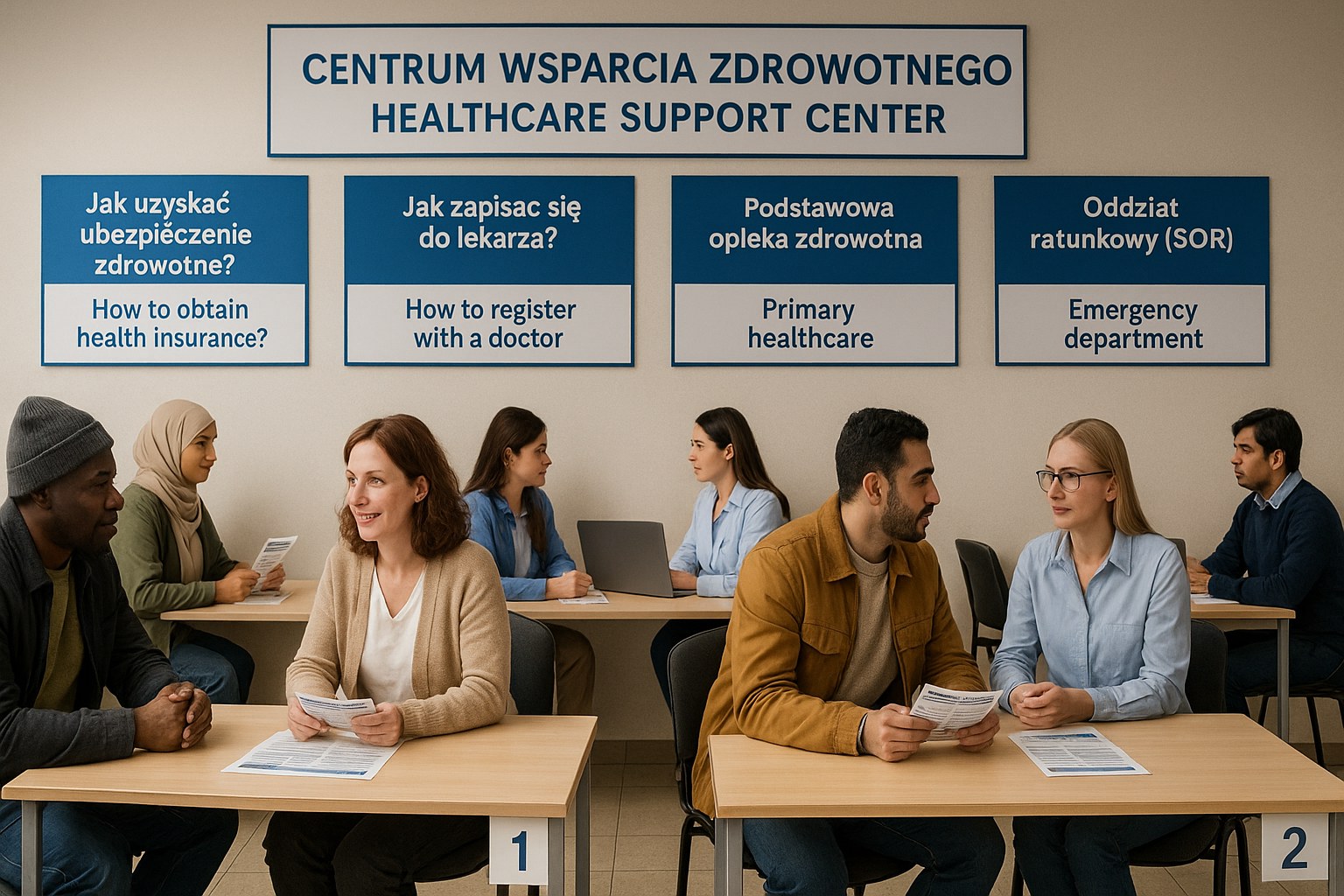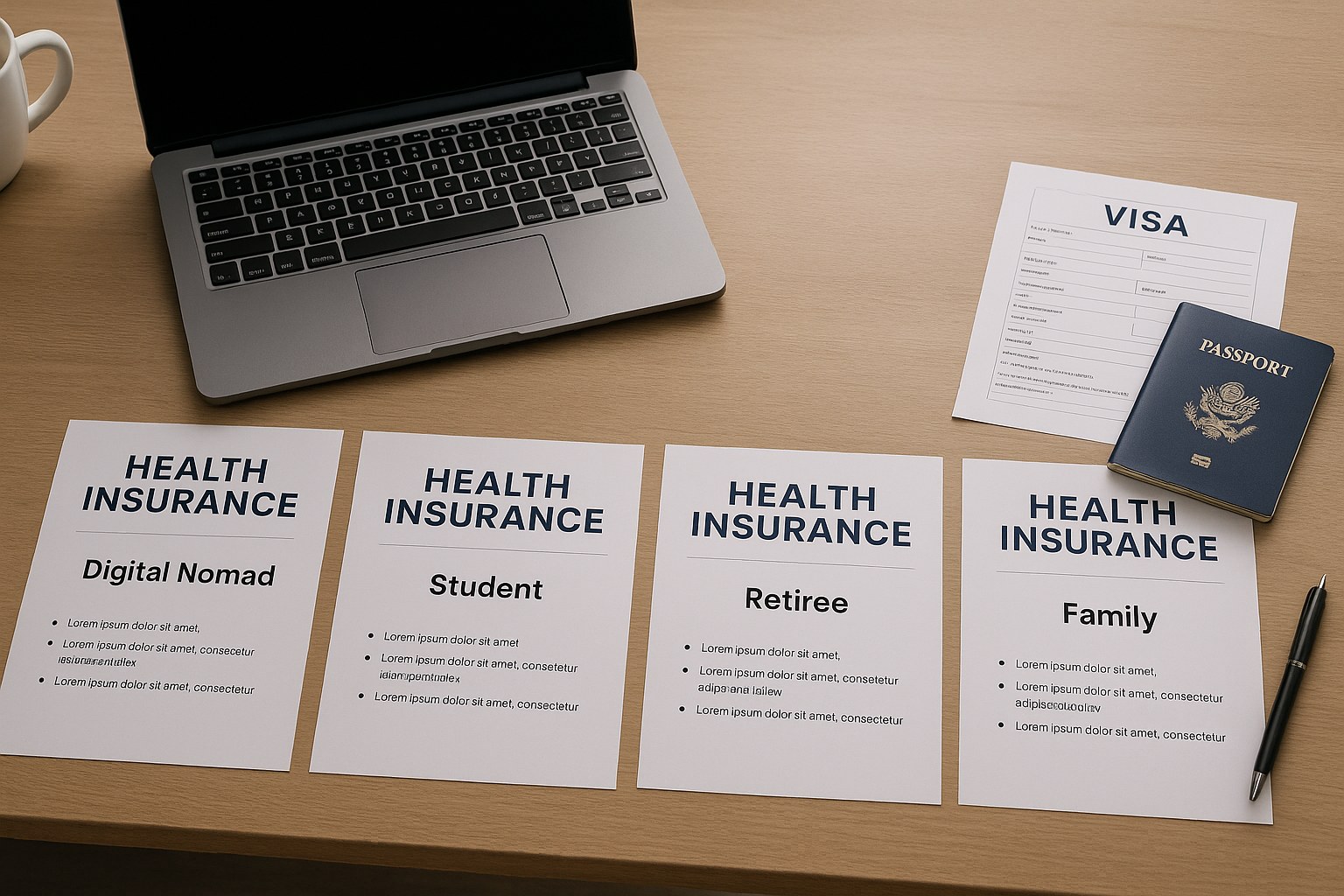A practical guide for Christian singles relocating to Poland who want real friendships, values-led dating, and a stable life beyond paperwork.
Check out the brand NEW WELCOME CENTRE
Poland operates a dual healthcare system: a public system administered by the Narodowy Fundusz Zdrowia (NFZ) and a parallel network of private providers. Both systems serve the entire country, and both are accessible to foreigners depending on their legal and insurance status.
The public system (NFZ) is funded by a 9% mandatory health contribution deducted from income, either by an employer or directly by the insured. It covers nearly all essential medical services at public hospitals and clinics, with no co-pays for most treatments. Foreigners who are employed, self-employed, or registered students may automatically qualify for NFZ. Others can join voluntarily under certain conditions.
The private system offers faster access, shorter wait times, English-language services, and more modern facilities. It includes providers such as LuxMed, Medicover, and Enel-Med, which operate clinics and hospitals nationwide. Foreigners can pay out-of-pocket or subscribe to monthly/annual private insurance plans tailored for both general care and specialist consultations.
Most expats choose a hybrid approach. A digital nomad or student might start with emergency-only insurance, then add NFZ or private coverage after settling. A long-term resident may keep NFZ for full protection and add a private plan for speed and comfort. Regardless of path, all legal residents must show proof of valid medical insurance when applying for a Temporary Residence Card (TRC) or visa.
Note for newcomers: Most Polish healthcare forms, portals, and staff communications are in Polish. You may need assistance from a Polish-speaking friend or a local service to complete registration and appointments. Use online translation tools or apps like Google Translate for forms, signage, and booking portals when needed.

The public healthcare system in Poland is managed by the Narodowy Fundusz Zdrowia (NFZ)—the National Health Fund. If you are covered by NFZ, you can receive free treatment at public hospitals and clinics nationwide, including specialist consultations, surgeries, and prescriptions.
NFZ coverage is available to foreigners as long as they fall into one of the following eligibility categories:
Foreigners who do not meet any of the above criteria can still gain access to public healthcare through voluntary NFZ insurance. This is particularly common among:
Voluntary NFZ insurance requires two steps:
Cost in 2025: The monthly contribution for voluntary NFZ insurance is 786.28 PLN. Rates for students are significantly lower (~55.80 PLN/month).
One-time joining fee (opłata dodatkowa): May apply if you’ve had a gap in previous health insurance coverage. Amount varies depending on the length of the gap but is often waived for new arrivals, students, volunteers, and clergy. EU citizens can submit an E-104 or S1 form to prove prior insurance and avoid the fee.
Once enrolled, you gain access to the entire NFZ-covered system, including public GPs, specialists, emergency care, hospitals, and subsidized prescriptions. Your eligibility is confirmed via PESEL or passport at appointments—no physical card is issued.
Need help enrolling? English Wizards offers a full NFZ registration support service for 350 PLN, including assistance with paperwork and navigating the ZUS system. Email us at hello@englishwizards.org to get started.

Poland’s public healthcare system, while comprehensive, is known for its bureaucratic structure and long wait times. Still, for insured individuals, it covers nearly all medically necessary services—from general practitioners to specialist surgeries and diagnostics—at no cost beyond monthly contributions.
The system is built around a “gatekeeper model,” meaning your access to healthcare starts with your primary care physician (POZ). Once insured, you must first register with an NFZ-approved doctor or clinic of your choice.
Appointments are typically available same-day or within 1–2 days depending on demand. Some clinics also allow walk-in visits during early morning hours. Since the pandemic, most NFZ facilities offer teleconsultations for minor issues like prescription renewals or referrals.
Tip for expats: While some NFZ doctors speak English, clinic reception staff rarely do. Use Google Translate or bring a Polish speaker to help you during your first visits. You may also ask other expats or online forums for recommendations on English-speaking clinics in your area.
When visiting your POZ doctor:
Referrals are necessary to access most NFZ-covered specialists and procedures. Without a referral, NFZ won’t cover the cost (with a few key exceptions noted in the next section).
Preventive care: The concept of annual check-ups is not standard practice in Poland. However, if you request one, most POZ doctors will comply—even if they’re surprised you asked while feeling healthy.
Your insurance status is verified electronically via the eWUŚ system. You don’t receive a physical NFZ insurance card. Instead, doctors confirm coverage using your PESEL or document number at each visit.
If you’re recently insured and not yet visible in the eWUŚ system, bring a copy of your NFZ or ZUS registration to prove coverage manually.

In Poland’s public healthcare system, Primary Healthcare—known as POZ (Podstawowa Opieka Zdrowotna)—is your first and most frequent point of contact with the NFZ. Every insured person must be registered with a POZ clinic and select a general practitioner (GP), who acts as your “gatekeeper” to all specialist services.
You must be insured under the NFZ—either through employment, voluntary registration, or dependent status—to access POZ services at no additional cost. If uninsured, you’ll need to pay out-of-pocket or seek care through private providers.
Most POZ clinics require you to book in advance. You can schedule by:
Many clinics now offer teleconsultations—especially for minor issues or prescription renewals. These are booked in the same way as in-person visits.
Most POZ doctors speak some English, but admin staff rarely do. Bring a Polish-speaking friend if needed for your first visit. Alternatively, ask expat communities for clinic recommendations known for English-speaking staff.
If you’re looking for more flexibility or immediate access without needing a referral, consider adding a private plan alongside your NFZ coverage.

Once you’re insured under NFZ and registered with a primary care doctor, you gain access to Poland’s extensive specialist network. This includes cardiologists, dermatologists, endocrinologists, psychiatrists, surgeons, and many more. Most specialist visits are free of charge under the public system—provided you have a valid referral.
Your GP (POZ doctor) will issue a referral (skierowanie) based on medical need. This document must include:
Once you have the referral, you can register for an appointment at any NFZ-contracted clinic or hospital. You can do this in person, by phone, or using online platforms such as terminyleczenia.nfz.gov.pl or pacjent.gov.pl.
A few categories of care are accessible directly without a skierowanie:
Even in these cases, long wait times are common, especially in larger cities. For example, it’s not unusual to wait 4–12 months for a public appointment with a neurologist, allergist, or endocrinologist. In smaller towns, wait times may be shorter—but access to English-speaking doctors is limited.
If you suffer from a chronic illness (e.g. diabetes, asthma, thyroid disease), NFZ covers regular monitoring, testing, and medications—though referrals and specialist approvals are often required. You may also be assigned a care coordinator for long-term conditions under new pilot programs launched in 2024.
Use these two tools to check national NFZ wait lists or make appointments:
Tip: Many foreigners choose to supplement NFZ access with private plans to avoid specialist wait times or language issues. English Wizards offers discounted private healthcare plans with guaranteed fast-track specialist access 12% less than going direct. Click here to compare options →

Pharmacies in Poland are called apteki, and they are widely available across the country, even in small towns. Many are open late or operate 24/7 on a rotating schedule in major cities. Medications are divided into two broad categories: prescription (na receptę) and over-the-counter (bez recepty).
Once you’re insured and registered under NFZ, your GP or specialist can issue an electronic prescription (e-recepta). The doctor will either:
NFZ covers or subsidizes thousands of medications, with patients paying only part of the price (typically 3–50 PLN), depending on the drug’s category. Your eligibility for subsidized pricing is linked to your PESEL and verified electronically at the pharmacy.
If you’re uninsured or using private-only coverage, you can still get a prescription from any licensed doctor (including teleconsultation services), but you will need to pay the full retail price for the medication. Many expats opt for private plans to get faster prescription access and avoid language barriers in public clinics.
Always bring your PESEL or passport when filling prescriptions. Larger chain pharmacies like DOZ, Gemini, and Super-Pharm may have English-speaking staff and online refill options. If you have ongoing treatment needs, ask your doctor to prescribe a 3- or 6-month supply in advance.

Poland offers universal emergency medical care to anyone in life-threatening situations — regardless of nationality or insurance status. This includes care for injuries, strokes, heart attacks, or any condition requiring immediate intervention.
Dial 112 (EU-wide emergency number) or 999 (direct to ambulance services in Poland). Callers can request English-speaking operators, although availability may vary by region. You can also visit the SOR (Szpitalny Oddział Ratunkowy) — emergency ward — at most public hospitals.
The average emergency room visit for an uninsured foreigner ranges from 300 PLN to 2,000+ PLN depending on diagnostics, medications, or hospitalization. These charges must be paid before discharge or later by invoice.
Foreigners applying for visas or residence permits (TRC) in Poland must prove they have at least €30,000 in emergency health coverage. Not all insurance policies meet Polish legal requirements.
✅ English Wizards offers certified emergency-only insurance plans through Signal Iduna and Wiener — both accepted by Polish immigration offices and valid for TRC/visa applications. Coverage starts at just $195 per year.
🛡️ Click here to purchase your emergency plan →
If your condition requires follow-up treatment, you may be admitted or referred to a specialist. In this case, the rules of your insurance (NFZ, private, or emergency-only) will determine what’s covered. Emergency plans cover only the urgent phase — not ongoing therapy, medications, or diagnostics.
Most emergency doctors speak some English, but support staff may not. Carry a written note explaining any known allergies or chronic conditions. You can also install the Internetowe Konto Pacjenta (IKP) app to share records with paramedics and ER staff.

If you’re a citizen or legal resident of another EU or EFTA country, the European Health Insurance Card (EHIC) allows you to access medically necessary treatment in Poland under the same conditions as Polish citizens — but only for temporary stays.
EHIC is intended for tourists, short-term business travelers, and students staying less than 90 days. The Polish facility must be part of the NFZ system for coverage to apply.
Need a full breakdown? English Wizards has created a comprehensive guide to the EHIC in Poland covering how to apply, use it legally, and transition once you move long-term.
If you begin working, studying, or residing long-term in Poland, your EHIC alone is no longer sufficient. You’ll need to register with ZUS (if employed) or sign up for voluntary NFZ insurance if you’re self-employed or a non-working expat.
English Wizards can help you transition from EHIC to local insurance coverage. We offer support for voluntary NFZ registration for just 350 PLN. Email us to register →

Whether or not to enroll in Poland’s public healthcare system (NFZ) depends on your visa type, employment status, length of stay, and personal medical needs.
NFZ is ideal for:
If you qualify, NFZ gives you broad access to clinics, hospitals, specialists, and subsidized medications — but wait times can be long, and English-speaking support is inconsistent.
NFZ may not be practical if you:
In these cases, private or emergency-only insurance may be more effective — and still valid for visa/TRC purposes. English Wizards provides access to both, and you can read more about them, including purchasing, here.
English Wizards offers full support for voluntary NFZ registration for foreigners who are unemployed, freelancing, or starting a business in Poland. For just 350 PLN, we handle the ZUS setup, paperwork, and activation process.

Emergency-only insurance is a popular option for expats, students, and digital nomads who want to meet visa or TRC requirements without committing to full public or private coverage. These policies are designed to cover life-threatening medical events — not routine care or follow-ups.
To meet Polish immigration requirements, the policy must:
English Wizards offers fully compliant emergency insurance plans through Signal Iduna and Wiener — both accepted by all Polish consulates and immigration offices.
Plans start from just $195 per year.
Emergency-only plans are suitable if you:
They are not a substitute for NFZ or private insurance if you need regular medical care while in Poland.

Private health insurance is widely used in Poland by locals and expats alike. It provides faster access to doctors, shorter wait times, and English-speaking services — especially important for foreigners navigating the system.
Private insurance packages typically offer:
English Wizards offers an exclusive 12% discount on LUXMED plans for all foreigners — even if you’re self-employed or not working for a Polish company.
We help you select the right package, complete the paperwork, and activate your plan fully in English. If you’re considering Luxmed, why not get the same plans and save with us!

Once insured with a private provider, using the system is typically fast and user-friendly — especially compared to NFZ.
Unlike the NFZ, private healthcare usually does not require a referral to see a specialist. This speeds up diagnostics and treatment — especially important for expats unfamiliar with Polish referral rules.
Most private clinics include blood tests, imaging, and other diagnostics directly in their centers. Results are uploaded to your app account — often within hours.
Not insured yet? Get discounted LUXMED access here →

For many foreigners in Poland, the answer is a resounding yes — especially if you’re not employed locally, are self-employed, or simply value speed, convenience, and English-language support.
Even if you’re eligible for NFZ, many expats use both systems in parallel: NFZ for basic coverage and private for convenience and speed.
Want a hybrid setup? Compare plans and save 12% through English Wizards →

If you’re in Poland temporarily or simply don’t want to commit to full insurance, you can still access healthcare by paying out of pocket — especially at private clinics.
Walk-in clinics and private medical centers (like LUXMED or Medicover) offer one-time appointments without requiring insurance. Booking online is possible, and English-speaking doctors are often available in major cities.
For digital nomads or tourists, this pay-as-you-go system can be more practical than buying a full policy — especially for minor issues like cold symptoms, minor injuries, or basic checkups.
English Wizards provides same-day access to private GP appointments through LUXMED — even without a full insurance plan.

Mental health services in Poland are available through both the public NFZ system and private clinics — but access, speed, and language support vary dramatically.
While free with NFZ, this option is not ideal for expats needing timely or English-language care.
English Wizards partners with licensed English-speaking psychotherapists who specialize in supporting foreigners in Poland. Same-week appointments are available online.

Staying healthy in Poland isn’t just about insurance and doctor visits — it’s also about fitness, movement, and mental balance. One of Poland’s most popular health perks is the Multisport card, which gives unlimited access to thousands of gyms, pools, yoga studios, and wellness centers across the country.
Normally, only full-time employees of Polish companies can access Multisport through HR. That means most expats — freelancers, business owners, digital nomads — are excluded.
We’ve partnered with Multisport to offer access to foreigners in Poland — even if you’re not employed locally. Whether you’re self-employed, on a visa, or just here for the year, you can now join the program with us.
🏋️♂️ Click here to join Multisport as a foreigner →

Yes — if you are legally employed in Poland and paying ZUS contributions, you are automatically enrolled in NFZ. Foreigners who are not employed may also register voluntarily with ZUS and pay a monthly contribution (see Public Healthcare section).
You need a policy that covers at least €30,000 in emergency care and is valid in Poland. This can be:
English Wizards offers fast, affordable visa-compliant plans. Buy yours here →
Yes — but only temporarily for emergency treatment if you’re an EU/EEA citizen. If you’re applying for a visa or residence permit, EHIC is not enough. See our full EHIC guide →
No — it’s funded through contributions. If you work, it’s deducted from your salary (9%). If you register voluntarily, you’ll pay ~780 PLN/month as of 2025 plus a one-time fee. Register with help for 350 PLN →
Emergency-only insurance (e.g., Signal Iduna) covers accidents and sudden illness — but not routine care. Private comprehensive insurance covers GP visits, specialists, diagnostics, and ongoing treatment.
In public NFZ clinics, it’s rare. Most staff speak only Polish. Private providers like LUXMED and Medicover usually offer full English-language support. Compare plans →
Yes. Even short stays (for tourism, business, or family visits) require valid medical insurance. English Wizards sells fast, visa-accepted emergency plans from €195. Buy now →

You’re working online for a foreign employer, not paying into ZUS, and need something TRC-compliant or for peace of mind. Your best setup:
You’re enrolled in university but your school doesn’t provide insurance. You have 3 options:
📩 Contact English Wizards for student help →
You run a business or are setting one up for TRC. In this case:
🔐 Register for public insurance now →
If you’re married, on a family reunification path, or applying for a permanent card, you’ll want:
💡 Combine coverage for full protection →
You’re here for tourism, short work assignments, or TRC processing. You won’t be eligible for NFZ. Best option: